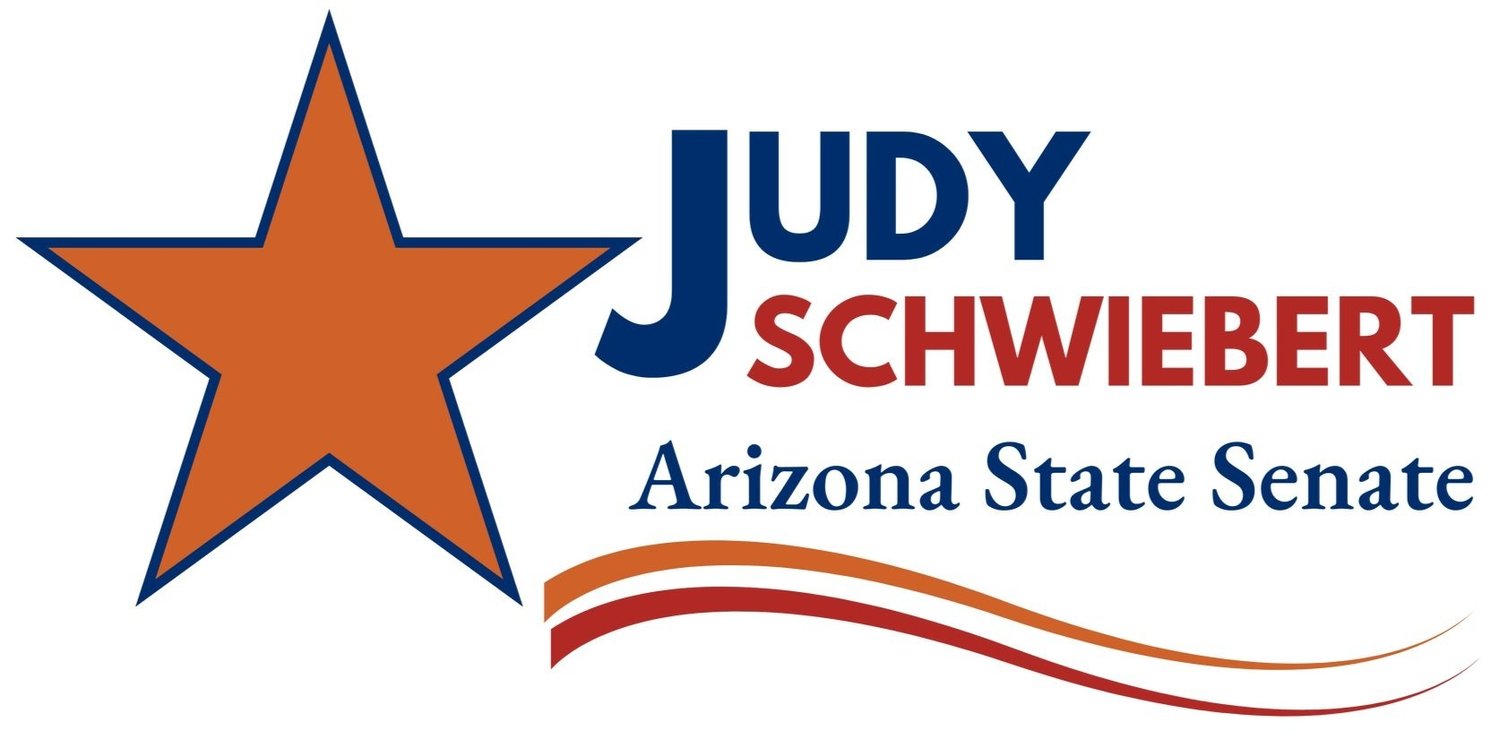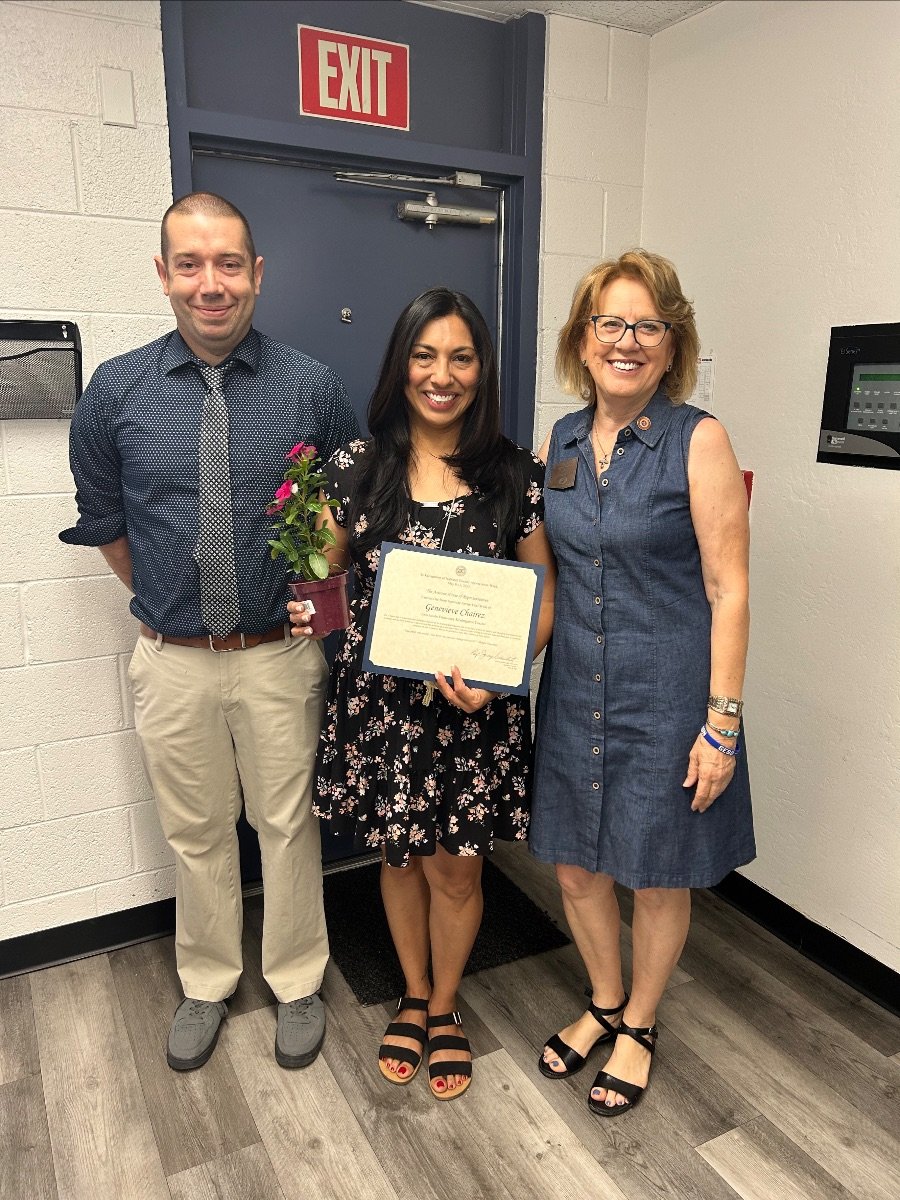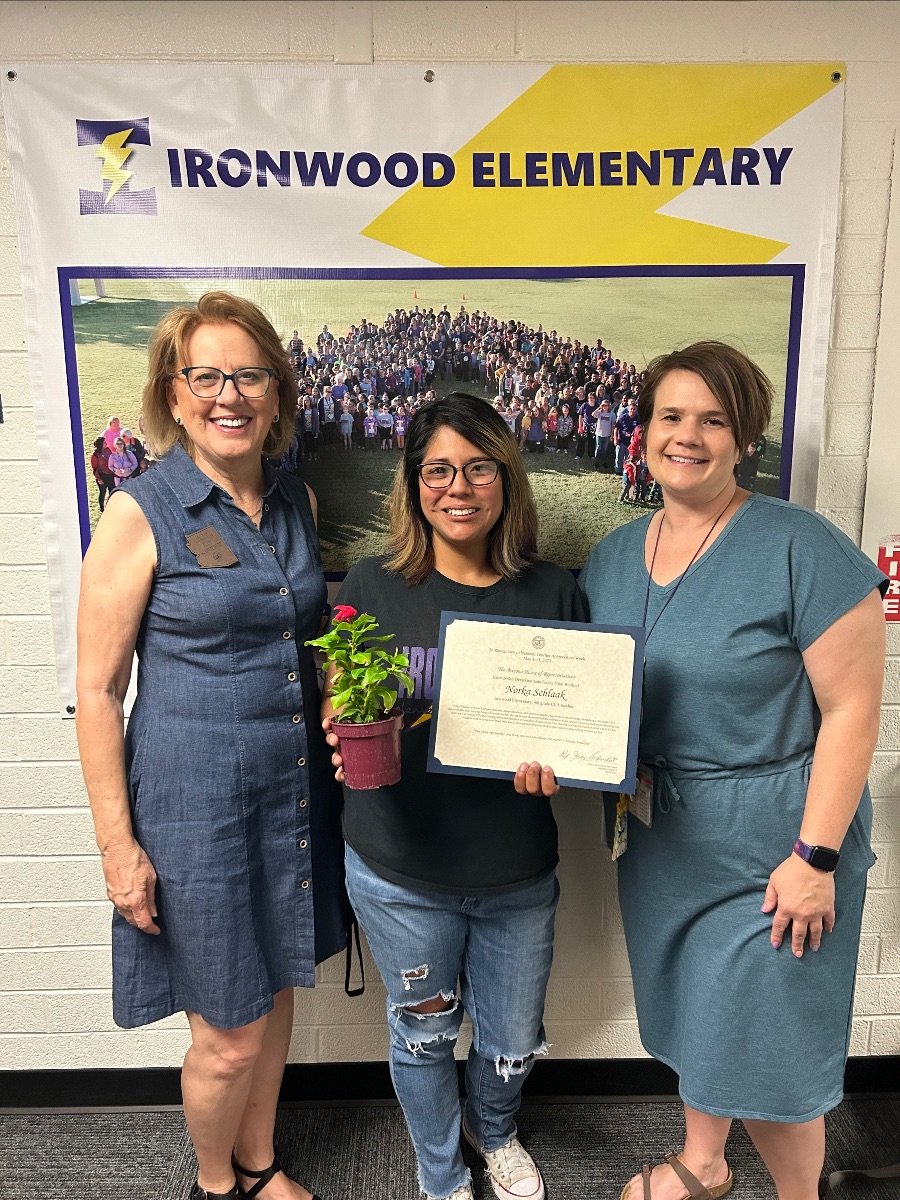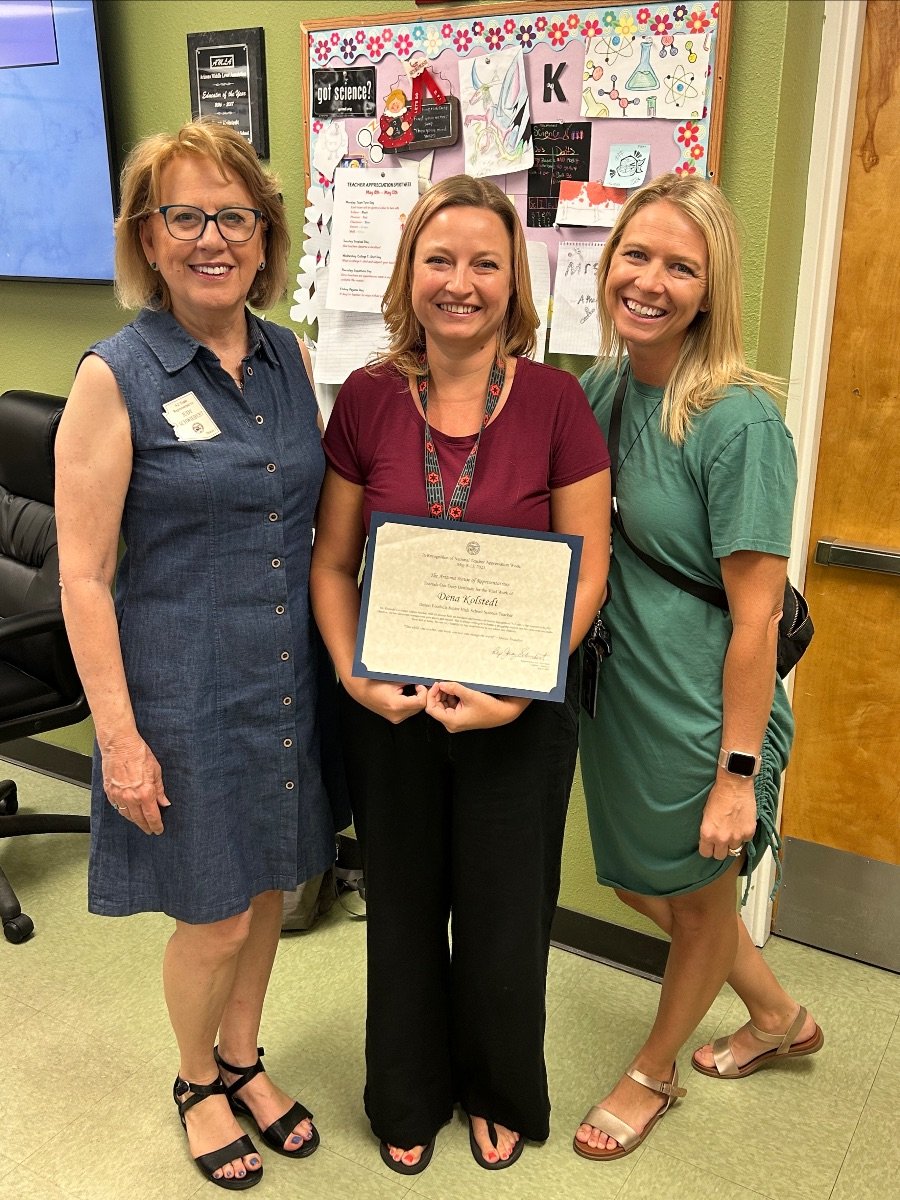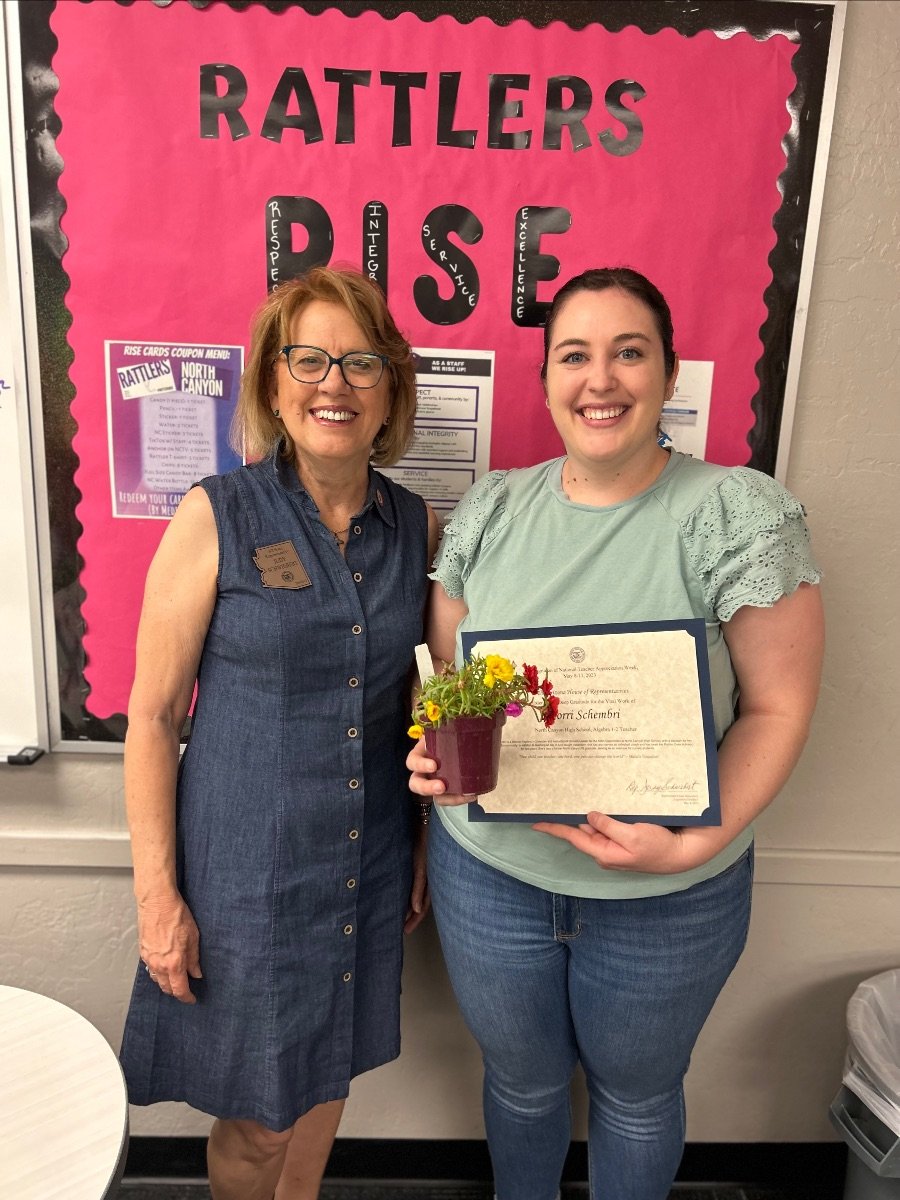Last Week at the Legislature
Hi Friend,
The big news about this past week is that we passed the $17.8 billion state budget, which is the legislature's primary responsibility. This is actually the earliest we've passed a budget in the three years I've served at the Capitol. The State Senate passed it in the wee hours of Wednesday morning, and we passed it out of the State House later the same day.
Governor Hobbs negotiated it over recent months with Speaker Ben Toma from the House and President Warren Petersen from the Senate (both Republicans). Later when Democrat House and Senate Minority Leaders Andres Cano and Mitzi Epstein (respectively) were included, their heroic efforts led to shifting some funding to address some of Arizonans' crucial priorities like K-12 education, and affordable housing and homelessness into the budget.
While the final product is being called a bi-partisan agreement in which everybody got something, the cost to Arizonans was heavy.
I was deeply discouraged that the budget did not include a cap on the runaway, issue-plagued universal ESA voucher scheme now projected to cost the state a billion dollars in just the next 2-3 years. It's growing exponentially because the wealthiest families whose children have NEVER attended a public school are now cashing in on a free government give-away that threatens to bankrupt the state. (Read more about this below under the ESA voucher section.)
But the budget also provided some increased spending for public schools and included a separate and crucial bill to lift the 1980-era school spending cap for next year so that district schools would be able to spend the funds we allocated to them without the uncertainty of past years that has held families, teachers and schools hostage and in fear of closure until March every year. It also included historic funding to address the affordable housing and homelessness crisis - the problems I hear about from my constituents more than anything else.
Frankly, I still wasn't sure of how I would vote as those of us on the House Appropriations Committee prepared to hear the budget bills before they went to the floor. But when the committee chair told us that we would be voting on all 15 budget bills as one package with no opportunity for explanation from policy experts or public testimony, I understood why my Democratic colleagues in Appropriations voted NO in protest to this unprecedented silencing of Arizonans.
However, bundling all the bills in one package meant that my NO vote would mean I'd be voting against lifting next year's school spending cap which is the top priority for schools in my district. I'd be voting against funds to address homelessness, and desperately needed affordable housing. I realized in a moment of clarity that I could not vote NO. And so I became the only Democrat on the committee to vote yes.
The painful truth was that both in Appropriations AND later on the floor, with every Republican voting yes on the budget, we simply didn't have the votes to cap universal ESA voucher expansion this year. (See What the Republicans Got below for more about why they voted yes.)
On the floor, Democrats introduced an amendment to safeguard children by ensuring that like public schools, private schools fingerprint their staff, and other amendments to cap or even pause the ESA voucher universal expansion scheme since ESA parents are reporting rampant fraud in the system, but every one of those amendments were defeated along party lines.
Ultimately, I voted YES on the budget because I didn't want to risk the many good things in it for the people of our state, including our children.
I'll break down some of wins and costs for Arizonans in this newsletter.
Judy
Representative Judy Schwiebert, LD2
jschwiebert@azleg.gov
Wins for Arizonans
Let's start with the good news. While minority leaders Andres Cano and Mitzi Epstein were only invited to the negotiating table late, they were strong champions for our shared priority to put the people of Arizonan first. Republican leaders gobbled up over $1 Billion of this year's revenue to fund pet projects (pork) to get their members to vote yes on the budget, while Democrats pooled our (smaller) portion to address the pressing issues Arizonans face like the teacher, affordable housing, healthcare and water shortage crises.
Democrats directed funds to investments in....
Public Education
Waiving the Aggregate Expenditure Limit (outdated school spending cap) for next year so that schools and families can actually count on the funds we allocate them without the last minute worries we've put them through the past few years.
Moving $68 Million in the base from results-based funding to increase base level funding for all schools
$20 Million for District Additional Assistance. While Charter Additional Assistance has been tied to inflation, District schools have not had that advantage. This increase of $20 Million annually over the next three years will help move them to parity.
$300 Million in additional one-time funding for public schools that can be used for teacher bonuses or capital improvements as needed.
$20 Million for the Promise Scholarship program to help students attend state universities
$15 Million for the Teacher's Academy that waives tuition for state university students who pledge to teach in Arizona
$10 Million for consumable art and music supplies
$3 Million for Professional development support for teachers in high turnover schools (my bill)
$2 million in feminine hygiene products available for students
Housing
A historic $150 million deposit to the Housing Trust Fund to help keep people in their homes, and build affordable housing.
$20 million this year and $40 million next year for homeless shelter and services
$10 million for emergency shelter group and transition living
$5 million for the Mobile Home Relocation Fund for people being displaced
$5 Million for transitional and re-entry housing for those being released from prison
$2 million deposit into the military transitional housing fund
Healthcare
$5 million this year and $6.6 million for the following two years to expand Kids Care, ensuring that more children in middle class and low socio-economic families have access to free or affordable healthcare and prevention.
$7.5 million for on call OB-GYN services for rural areas where there are no doctors
$1 million for Alzheimer's disease services plan
$.5 Million for Alzheimer's research.
$.5 million for Dementia awareness campaign
Water & Environment
$6 Million for State Parks' Heritage Fund to maintain our parks and preserve our state's historic, cultural, and nature heritage . That line item is supposed to be receiving $10 Million annually from the Lottery, but Republicans swept that money for the past several years. Last year, it was funded at $2.5Million.
$5 Million to the Department of Water Resources for statewide planning. It's a relatively small amount, but will accelerate the annual supply and demand assessments they were charged with completing and give us a better idea of the health of each of the state's groundwater aquifers.
Losses for Arizonans
ESA Vouchers and more
Budget negotiations this year were focused on the $2.5 Billion in revenue over past estimated budgets. We have that amount primarily because of the federal funds that flowed to Arizona to keep families and our economy afloat during the pandemic. But that additional revenue has ended and we're on our own in a very leaky boat.
First of all, Arizona has a serious revenue problem because over the past decade Republicans have made corporate tax cuts and loopholes for the wealthiest Arizonans their top priority. Our budget is now the size of North Dakota's which has a population of 700,000. (Arizona's population is 7.3 million people and growing.)
This year, Arizona's budget demonstrates that like the invasive salt cedars, universal ESA vouchers are choking the vital services Arizonans need and deserve to thrive.
For those of you not clear about what an ESA voucher is: ESA stands for Empowerment Scholarship Account, a nice-sounding term for what is basically a school voucher. For years, courts re-affirmed that public tax dollars could not be used to fund private religious or other schools. So national Koch brother and Betsy DeVoss privatization groups came up with a work-around that was picked up by Arizona Republicans: ESA vouchers would go directly to PARENTS who could then do whatever they wished with those taxpayer funds - and Republicans would sell the program as "parent choice". The truth is that it's not so much parent choice as it is the school's choice. Private schools don't have to take students who aren't the right color or religion or otherwise don't "fit". It's modern day segregation. The beautiful thing about public schools is that we accept everyone. The ESA voucher program was originally sold as one to benefit families whose children have special needs beyond the scope of what we generally fund public schools to provide. However, now that EVERYONE can get an ESA voucher, an estimated 80% of those funds are going to families in wealthy zip codes whose children have NEVER attended a public school. I don't oppose school choice - we have LOTS of choices for parents already in Arizona, but I do oppose making taxpayers pay for that choice. Essentially, universal ESA vouchers have become welfare for the wealthy.
The Billion dollars Republicans ensured to fund universal ESA vouchers over the next three years steal from all of us in this budget.
Special needs families who were the original intended recipients. ESA parents are complaining about the widespread abuses of the system that are now putting their children’s needs at the back of the line and will cost taxpayers more than a billion dollars including financial shenanigans, nonsensical accreditation for vendors that open the state up to enormous liability, and parents pursuing questionable disability diagnoses for their children in order to play the system for $30,000 per student or more.
Families of the 1.1 million children who depend on our public schools ($320 Million additional funds this year for public schools compared to the BILLION over the next three years)
Employers who depend on an educated workforce. This budget
Eliminates the third year of the New Economy Initiative funding for state universities this year, the only investments the legislature has made in them
Continues to provide $0 for Pima & Maricopa Community Colleges
Will lead to severe cuts to community colleges since it doesn't address the outdated expenditure limit for them.
All Arizonans who depend on the Attorney General's office to
fight the fentanyl crisis and drug cartels
protect Arizona's children
combat elder abuse and consumer fraud
All Arizonans who depend on the Secretary of State's office to keep our elections safe and secure. Hateful accusations and threats against people of every party who have devoted their lives to our safe, secure elections, have driven many of them - from almost every county in Arizona - out of the profession. Our Secretary of State should be funded to ensure we continue to support county recorders and staff to keep our democracy working.
People with Developmental Disabilities. Long ago Arizona decided that the state should ensure proper care and dignity for people with severe disabilities who often don't have family. But they're struggling to find staff because we continue to underfund the by $60 million or more, according to independent sources.
People with Mental Health issues. Unfortunately, there continues to be a stigma around mental health. We wouldn't say, "Buck up, you can handle it." to someone with a broken leg, but that is too often the attitude toward someone with mental health issues. Untreated mental health issues are behind the increase in youth suicide as well as homelessness.
Contrasting Priorities
What Republicans Got
Republicans used to be known as the party of fiscal responsibility. Not anymore.
This budget provides a very clear picture of the contrast between Republican and Democrats' priorities. Democrats worked together to invest in crucial programs Arizonans need. Republican leadership garnered their party members' votes for the budget by giving every individual member their very own $30 million or more to spend.
Essentially, Republicans got over $1 Billion in pork: projects in their own districts to help get them re-elected.
Those include
A whole slew of road projects that the Arizona Department of Transportation is already charged with prioritizing. But rather than funding ADOT properly, Republicans used their "own" money in the statewide budget to basically jump the line and put their projects first while stripping Maricopa County cities from their meticulously planned Prop 400 transportation needs.
Additional international trade offices
Vendor bills that fund projects that only one vendor is able to fulfill and line their pockets.
Private prisons that have proven to be much more costly than state-run prisons.
A rodeo
Diverting control of funds to the only Republican statewide office holder to distribute
And of course, a billion dollars over the net three years for ESA vouchers with no financial or academic accountability
Highlights of Last Week
Last Sunday: Happy 100th Birthday!
Happy 100th Birthday to Maria Berryman! I so enjoyed attending the big family celebration for her last Sunday at Shepherd of the Valley UMC.
Monday: Recognizing Outstanding Teachers in Our District on the House FloorTeacher Appreciation Week
During this Teacher Appreciation Week, each of us in the House Teacher Caucus (Rep Jennifer Pawlik, Rep Nancy Gutierrez, and Rep Laura Terech) were proud to recognize just some of the many outstanding teachers in our districts who every day dedicate themselves to helping our children and all of us thrive.
Monday: On the House floor, I Recognized Artist Amy Chin as part of the AAPI Month Celebration
Many Americans are not aware of the racism Chinese American immigrants faced for over 100 years.
Following the US Congress' passage of the Chinese Exclusion Act in 1882, Asian immigrants were ineligible for citizenship and subject to the most severe immigration restrictions for entry. Inspectors subjected immigrants to labyrinthine questioning - and ALL female Chinese immigrants were required to prove to the inspectors that they were NOT prostitutes.
It wasn’t until 1965 that permanent Chinese residents who had been here for generations were even allowed to apply for US citizenship.
Artist Amy Chin’s twelve large panels illustrate this history of racism by following three generations of her family in America. In 1913 her grandfather pretended to be native born to gain entry, and later created the "paper son" strategy to help others immigrate. Next, she portrays her uncle who died while serving America in World War II; then, she depicts her father who was held for three months in an immigration detention station; The final panel shows an adult Amy discovering and taking pride in the sacrifices her family made to become Americans.
It is an honor to tell my ordinary story,” says Amy Chin. "I feel like I’m putting something out there that had been kept secret but that we should be proud of: our immigration history. But the trauma of feeling unwanted is still present today. By putting my story out there, it shows that the scars have healed for us and maybe others. It is important not to be afraid of the past.”
Friday: Delivering a personal thank you to a few of our outstanding teachers.
What a joy it was to start my school visits today to thank just a few of the many outstanding and dedicated teachers in our district with a certificate and small plant from Summer Winds Nursery. You all are so vital to our community.
Thank you to Kindergarten teacher Genevieve Chairez and Principal Stephen Whynott from John Jacobs Elementary.
Thank you to ELL teacher Taylor Miller and Chaparral Elementary School Principal Kara McDivitt.
Thank you to Ironwood Elementary School 4th grade CAA teacher Norka Schlaak and Principal Stacey Sallee.
Thank you to Desert Foothills Junior High Science teacher and Assistant Principal Lindsey Larson.
Thank you to North Canyon High School algebra teacher Corri Schembri and Assistant Principal Matt Lersch.
A special thanks also to Paradise Valley Unified School District Superintendent Dr. Troy Bales for joining us to also tour a wonderful special ed classroom, the Zen Den in the Media Center, and a rehearsal in their beautiful new auditorium.
Friday at the AEA Delegate Assembly
What a great way to wrap-up Teacher Appreciate Week - at the AEA Delegate Assembly. I was proud to attend along with so many public education supporters from the legislature and to hear from so many teachers and their commitment to solidarity for their students and schools. Thank you to AEA President Marisol Garcia and to Governor Katie Hobbs for your inspiring messages.
Click here for this week's Ed Report from Save Our Schools
Here's a portion of what you'll learn from Save Our Schools this week:
"Even though the budget is done, the legislature remains in session. We expect Hobbs to continue vetoing bills that attack students and the budget, but there’s no way to know what deals were made, what will happen with Prop 400 negotiations, and what the Republican majority will choose to do with various SCRs and HCRs (bills that leapfrog the governor’s signature or veto and go straight to the ballot in 2024). We must remain engaged and vigilant until this legislative session ends."
Click here for this week's Civic Engagement Beyond Voting Weekly Report
Here's a portion of what you'll learn from CEBV this week:
"Monday features an incredibly long House floor session, with over 75 bills scheduled for a hearing (see a description of many of those bills at the link above). We’re told legislative leaders are trying to push as many of those through as possible before Republican lawmakers start disappearing for vacations.
One thing we don’t know is whether the many bad bills we are still watching were somehow wrapped into budget negotiations. You’ll note, for example, the rental sales tax ban Hobbs vetoed in February has been revived as a striker and is on a floor calendar for Monday. We simply don't know what deal, if any, she may have made with the GOP on these.
After Monday they will go on break again, then come back the week of May 22, to hopefully adjourn for good (and good riddance)."
